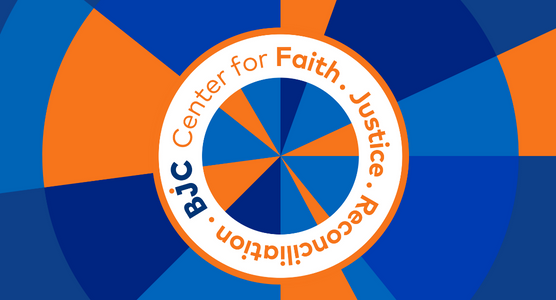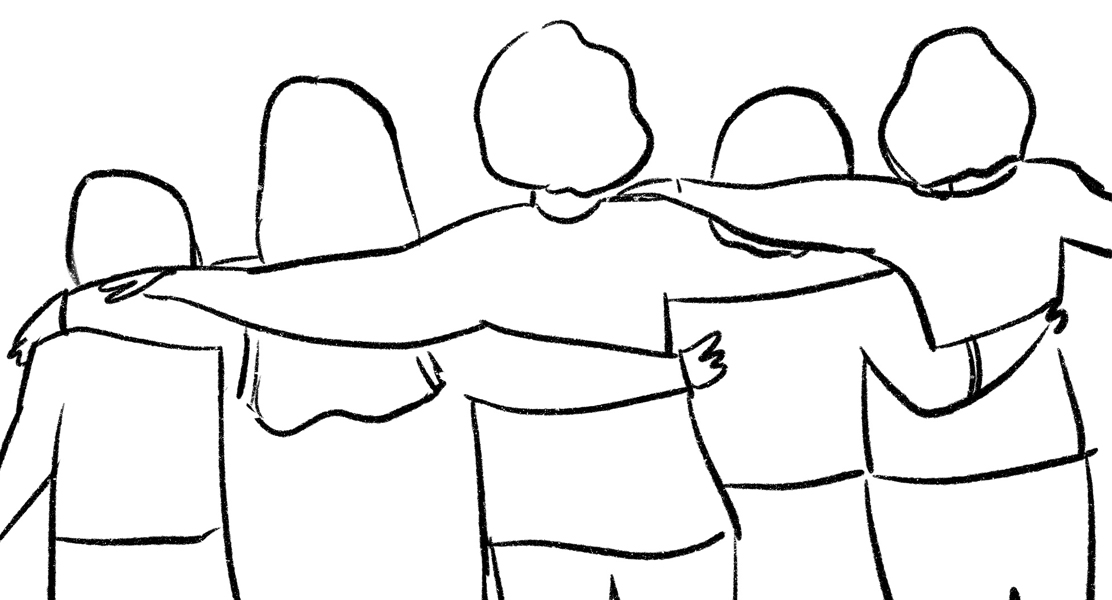Reflections on ‘(Dis)belief’
Examining the impact of the Religious Freedom Mobile Institute’s conversations between Black Church leaders and Black nontheists, reimagining the religious landscape of Black America

By Jaziah Masters, Research Fellow
BJC Center for Faith, Justice and Reconciliation
What are the things that make us human?
There are many answers to this age-old question and many ways to approach the subject of humanity. One way is the idea of belief. What do humans believe about themselves? Their world? And their God(s)?
When it comes to Black Americans, the answers to these questions are often wrapped in a tight singular narrative. People tend to think of it this way: Enslaved Africans merged the traditional beliefs and practices of their homeland with the religion of those who held them in bondage. The Black Church — with its emphasis on both worship of God and human dignity — emerged as a linchpin of the Black community. Facing racist attacks by the Ku Klux Klan and other forces of white supremacy, the Black Church informed and sustained the advocacy work that won Black people equal standing under the law. Today, in a growing age of disillusionment with organized religion, Black people remain incredibly faithful. Sound familiar?
Black people, both churched and unchurched, know that the story and history is much more complicated than that. What are the nuances that this oversimplified narrative overlooks?
This year’s Religious Freedom Mobile Institute created needed conversations to tell the story more clearly. “(Dis)Belief: Reimagining the Religious Landscape of Black America” is an example of what happens when Black Church leaders and nontheists come together to talk, laugh and air out their grievances. For two days, Dr. Sabrina E. Dent of the BJC Center for Faith, Justice and Reconciliation and Dr. Anthony Pinn of the Center for Engaged Research and Collaborative Learning at Rice University hosted a “family conversation” centered on a simple question: What do we as Black Americans believe and not believe?
The answer, which should come as no surprise, was “it’s complicated.”

Bringing together speakers from academia, the arts and the church, a consistent theme throughout the virtual symposium was a reminder that matters of faith are not black and white. Adherence to religion — or not — belongs on a spectrum. Belief and disbelief exist and operate distinctly and, at times, overlap. There was such a richness in the discourse, hearing each presenter discuss the nuances of how they enter into conversations about (dis)belief and how it informs their being, their work and their Blackness. Each of the 12 presenters and four moderators addressed the following questions:
- Is our current theological language sufficient to capture the thought and ethics of African Americans outside of Black churches?
- Is the relationship between the Black Church and disbelief necessarily antagonistic?
- Does the thriving of Black people in the United States require the presence of the Black Church? If yes, how might its role change and shift to address the complexities of the Black community? If not, what organizational forms and structures of thought and action might replace the Black Church?
At the center of these questions is a deep concern for humanity. Black humanity. Concern for the well-being of Black people has been an underreported issue, as many of the speakers pointed out. Black well-being concerns the soul, the body, mental health and even spiritual practices. The symposium brought forward all these experiences. When we see belief and disbelief in conversation together, we know that humanity — something long denied to Black people — is an ecosystem. All the components overlap, feed and depend on each other for the survival of the whole.
I believe that is why the lived experiences of Black youth were highlighted throughout the panels. We saw pictures of Black children winning awards and heard stories from Black children recounting their experiences of being told they were going to hell for not subscribing to a religious tradition. This storytelling was so important because the future of Black belief and disbelief belongs to these children. What are the stories they are telling? How do they situate themselves in the religious narratives that generations before hold on to? “(Dis)Belief” was a family conversation that asked, “Are the children okay?” The answer, again, was “it’s complicated.” Yet that uncomfortable ambiguity needs to be shared and acknowledged. Bringing these stories, both life-giving and heartbreaking, can start conversations about the ways our community falls short and, in doing so, embrace the nuances of the next generation.
Black millennials are reconstituting their faith and spiritual practices in liminal space, this invisible space betwixt and between their traditional religious beliefs and nonbelief. In essence, the liminality experienced by many a Black millennial in this should be understood as a space for reconstruction of identity.
The way that Black youth are approaching religion is worthy of further exploration. Several of the youth spotlighted during the event reflected on the fact that, although they don’t adhere to any religious tradition and associate religion with negative experiences, they still approach religion and religious people with an open mind and heart. It is not that they are anti-religious, they said; it is that religion is simply not for them. They have chosen something else: disbelief, spiritual seeking, skepticism or none of the religions. But what is most important from their stories is the fact that all these views can coexist peacefully. They can still go to the movies, sit in the same classroom and perhaps even go to the same house of worship — all while still respecting each other’s humanity, their right to believe as they will and their religious liberty.
The term “religious liberty” at first may seem misplaced here in this conversation about disbelief. This is because, in our polarized and politically charged environment, many have taken the term to mean exclusion on religious terms or “Christian privilege.” Religious liberty is anything but exclusive. Religious liberty is the ability to believe as one sees fit without unnecessary interference from the government. The U.S. Constitution provides for the peaceful coexistence of many theological beliefs (and no belief) with all having the same access and ability to participate with dignity in the public square. Whether they know it or not, these young people are embodying religious liberty. In them, I see the makings of a religiously pluralistic society.
We need to make space for theological consent. Do you believe this because you chose to? Because it is freeing in whatever way to you? Or because this was imposed upon you by the tradition? I love this move to community.
The “(Dis)Belief” conversation is a call to action. It is a reminder that people are more similar than they are different. It models how to talk across differences. It allows for diversity of opinion and belief while letting us all know that, at the center of all walks of life, there is a commitment to respect humanity in ourselves and others. If our society is ever to achieve those lofty goals, we have to have more conversations about belief and disbelief.
Often, people leave conversations like these and expect an answer about what is next. I am increasingly learning that the answer to that question is — you might have guessed — “it’s complicated.”
Sometimes the next step is to drive home from work. Sometimes the next step is to say “hello” to someone at the grocery store who you might not have spoken to otherwise. Whatever the next step, I continue to think about how humanity was at the center of this conversation on belief.
What if the next step was to believe in humanity? What if the next step was to seek humanity in our everyday lives? What if the next step was to think about what it is we believe about humanity?
In a period of increasing global conflict, partisan rancor and outright disregard for humanity, I am inspired and proud of this program. Here is a conversation when everyone could bring their full selves to an honest discussion about the Black Church, an important cultural institution at a crossroads. Whether complimentary or critical, each perspective was welcome.
I believe that taking time to acknowledge our collective joy and pain is something worth honoring. I think people will never stop — and should never stop — dialoguing about what we believe and disbelieve about ourselves. I wonder how much of our current problems and predicaments are a result of the breakdown of human beings talking to each other about their shared humanity.
Regardless of our religious tradition, the symposium was a reminder that our shared humanity is something still worthy of believing in.
The Religious Freedom Mobile Institute included a screening of the documentary gOD-Talk, exploring the lives of seven Black Millennials and their challenges and discoveries with faith in the 21st century, providing a deeper understanding of the role of faith in shaping the African American experience and its impact on our world today. It’s the first feature film of the Smithsonian’s National Museum of African American History and Culture, produced in association with the Pew Research Center.
Jaziah Masters is a research fellow for the BJC Center for Faith, Justice and Reconciliation.
In addition to partnering with the Smithsonian’s National Museum of African American History and Culture, the virtual Religious Freedom Mobile Institute was hosted jointly by the BJC Center for Faith, Justice and Reonciliation and the Center for Engaged Research and Collaborative Learning at Rice University. Scroll down for a full list of presenters and topics.
This article first appeared in the winter 2023 edition of Report from the Capital. You can download it as a PDF or read a digital flip-through edition.
Titled (Dis)Belief: Reimagining the Religious Landscape of Black America, the 2023 Religious Freedom Mobile Institute was a two-day virtual symposium, featuring the following presentations as panelists discussed, debated and reimagined the religious landscape of Black America:
Rev. Dr. Brianna Parker:
It’s Tricky: Christian Identity & the Black Church
Dr. Christopher Cameron:
African American Secular Humanists: What We Believe
Dr. Teddy Reeves:
“It Can’t All Be Bullsh*t:” Black Millennials and the Rising Tide of Disbelief
Dr. Sikivu Hutchinson:
Gen Z Humanists in the Hood
Rev. William H. Lamar IV:
Not Our Enemies
Candace Gorham:
Truce! Bridging Secular and Religious Communities to Address Black Mental Health
Rev. Dr. Eboni Marshall Turman:
Scorned: Faith, Gender, and the Aesthetics of Black Disbelief
Dr. Terrence Johnson:
Between the Shadows of Repression and Revolution: Black Religion, Freedom, and the Politics of Disbelief
Rev. Naomi Washington-Leapheart:
Do Black Lives Matter to God? How Black Theodicy Shapes Black Resistance
Dr. Kevin Cosby:
No Black Institutions, No Black America: What We Got Wrong About Integration
Dr. Yolanda Pierce:
Reimagining Rituals: Worship & Black (Un)Belief
Rev. Dr. Danté Quick:
Inside a Silent Tear…Carmen McRae as a Conduit to the Construction of Black Theological Cosmopolitan Conversations






